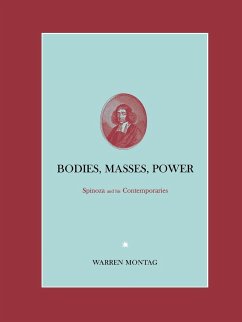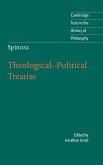This book seeks to show, against the grain of English language commentary, that Spinoza is neither a Cartesian nor a liberal but precisely the most thoroughgoing materialist in the history of philosophy. The work begins by examining Spinoza’s notion of the materiality of writing, a notion developed through his examination of scripture. It then postulates the three fundamental principles of Spinoza’s philosophy: there can be no liberation of the mind without a liberation of the body, and no liberation of the individual without a collective liberation, and that the written form of these propositions itself possesses a corporeal existence, not as the realization or materialization of a pre-existing mental, spiritual intention, but as a body among other bodies. Ultimately, the book prompts us to consider Spinoza’s philosophy anew, by replacing questions like "Who has read it?" and "Of those, how many of us have understood it?" with "What material effects has it produced, not only on or in minds, but on bodies as well?" and "To what extent has it moved bodies and what has it moved them to?"
Hinweis: Dieser Artikel kann nur an eine deutsche Lieferadresse ausgeliefert werden.
Hinweis: Dieser Artikel kann nur an eine deutsche Lieferadresse ausgeliefert werden.








